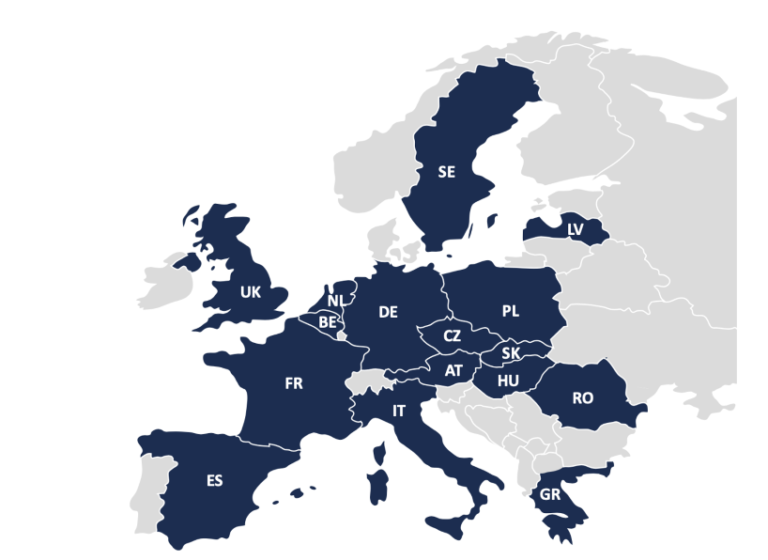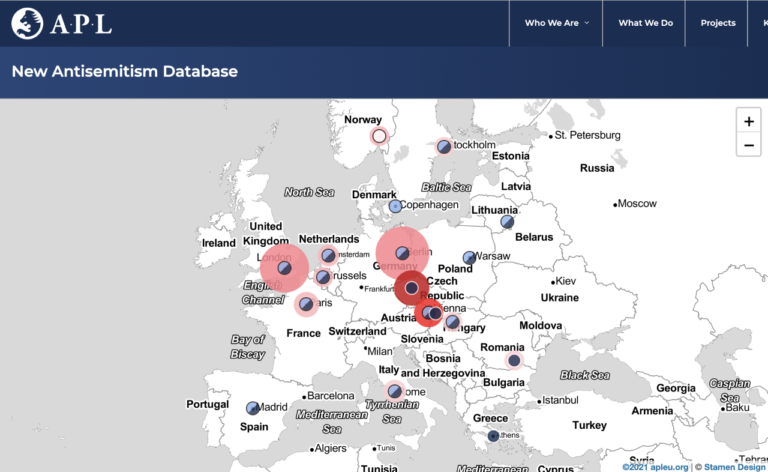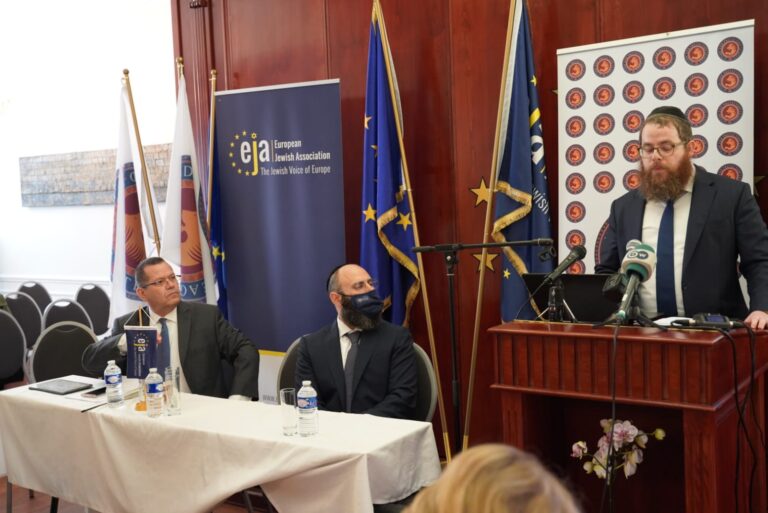A police officer told a woman during an anti-Israel march in London that whether holding up a swastika is an offence depends „on context”.
An American documentary maker, Jocelyn Weiss, has complained to the Met after she was told by a policeman patrolling an anti-Israel march that the question of whether or not holding up a swastika was an offence depended „on context”, reports The Jewish Chronicle.
Weiss had been at a counter-demonstration where anti-Hamas demonstrators waved Israeli flags and signs that said „Hamas is terrorist”. In the anti-Israel crowd, she saw numerous offensive banners, including one with Nazi symbols.
A video footage of Weiss challenging the policeman about a protester carrying a swastika went viral. „A swastika does not depend on context,” Weiss told the JC.
Emily Schrader – אמילי שריידר امیلی شریدر on Twitter: „When the @metpoliceuk refuse to arrest Hamas supporters with a swastika sign today in London one officer told a girl that swastikas disturbing public order „depends on context”If you’re holding a sign with a swastika at an anti-Israel march – this is blatantly antisemitic. Come… pic.twitter.com/MjDNnHomnv / Twitter”
When the @metpoliceuk refuse to arrest Hamas supporters with a swastika sign today in London one officer told a girl that swastikas disturbing public order „depends on context”If you’re holding a sign with a swastika at an anti-Israel march – this is blatantly antisemitic. Come… pic.twitter.com/MjDNnHomnv
During their conversation in central London at the anti-Israel protest, Weiss tried to explain to the officer that a swastika was antisemitic. The officer said swastikas were not illegal in certain contexts and refused to take action. According to Weiss, other officers also told her that „it was not their job to arrest people with swastikas”. The Met has since arrested the protester.
As the video continued circulating on social media, the Met released a statement: „This video clip is a short excerpt of a 10-minute conversation with an officer. During the full conversation, the officer established that the person the woman was concerned about had already been arrested for a public order offence in relation to a placard.”
„The officer then offered to arrange for other officers to attend and accompany the woman to identify any other persons she was concerned about amongst the protestors, but after turning to speak to his supervisor, she had unfortunately left.”







